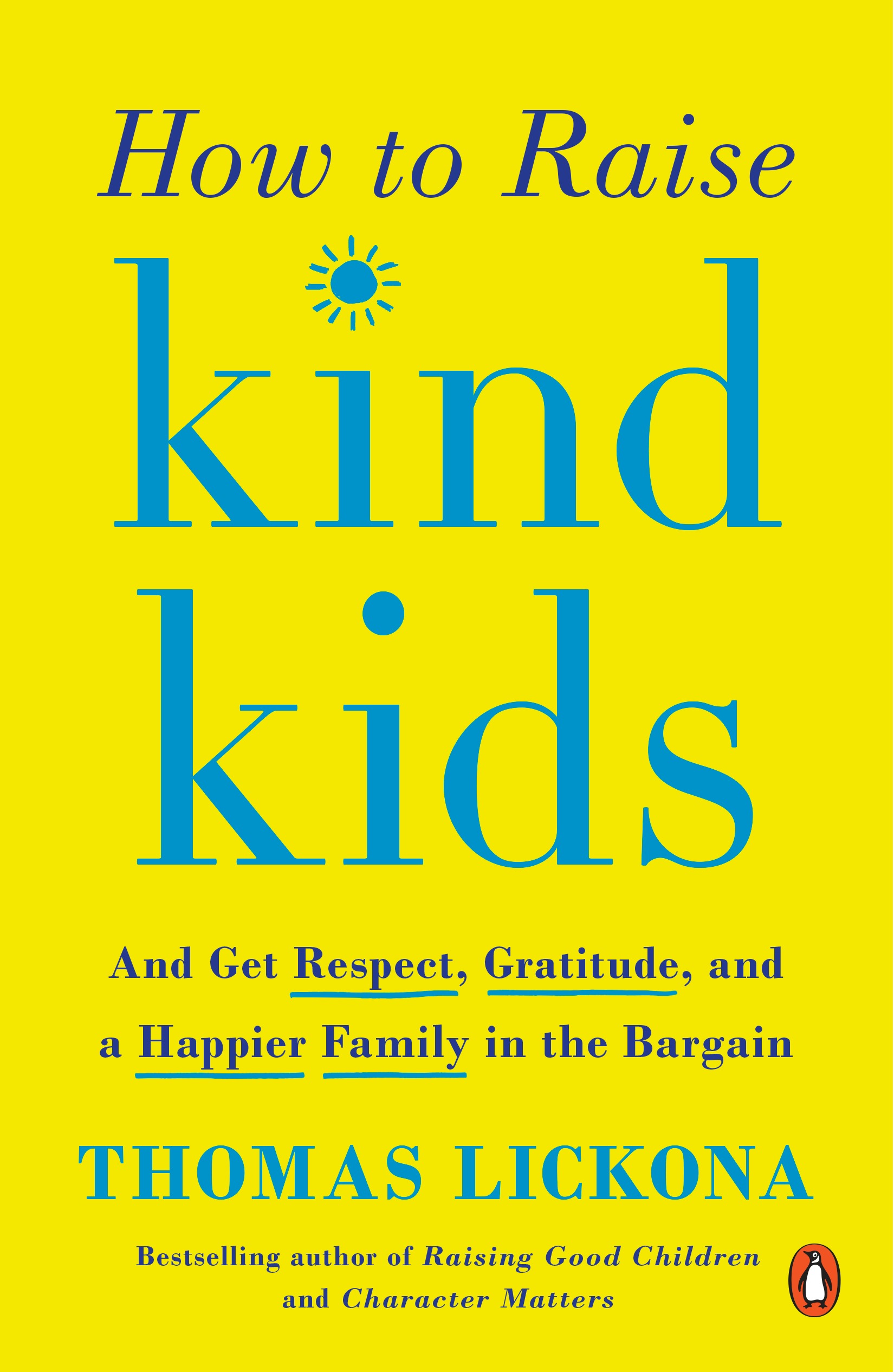
On a Saturday afternoon, you take your three kids to a movie they’ve wanted to see, then to their favorite hamburger spot for dinner, followed by ice cream. When they get home, they want to watch a movie on Netflix. When you tell them you think they’ve had enough screen time for the day and you’d like them to do something else, they complain that they have nothing to do.
What parents haven’t had an experience like this with their kids? It’s frustrating for at least three reasons: (1) when we do things for our children, it’s natural and reasonable to expect them to express thanks and disappointing when they don’t; (2) when they aren’t thankful but instead complain, that puts both us and them in a bad mood (since complaining almost always makes a person feel worse, not better); and (3) being ungrateful and complaining is inconsiderate, self-centered behavior — the opposite of kindness. Kindness means thinking of others and acting in ways that contribute to their happiness; complaining certainly doesn’t do that. If you’ve been trying to make kindness part of your family culture and there’s still a lot of complaining, it’s time to take further steps to teach and practice gratitude.
Cultivate the virtues that support thankfulness.
Gratitude depends on two other virtues: a positive attitude (seeing the good) and fortitude (coping with adversity). We won’t feel thankful unless we have a mind-set to recognize the positive things in our lives for which we should be grateful. When my wife and I find ourselves in a negative frame of mind, one of us will say, “Let’s do positives,” and we take turns remembering the positive things that have happened that day (and there are always positives, even on the worst days). We can teach our kids to do the same.
Fortitude, the inner toughness that enables us to endure pain and suffering, requires a realistic view of life. Many kids think life should be easy — free of frustration, disappointment and heartache — and are unhappy when it’s not. The virtue of fortitude begins with understanding and accepting a basic truth: Life is difficult. With our help, kids can learn to be grateful even for life’s challenges — and the opportunities they provide to grow in wisdom and strength of character.

Count your blessings.
We’re told that the way to be happy is to “count our blessings,” but how do you actually do that? As a family, make a list of the things you tend to take for granted. If you do this over dinner, you could think about everyone at every stage whose work went into the meal you are eating — the farmers and harvesters, the truck drivers, the grocery store staff, all the way up to the cook.
As a follow-up activity, try this from Hal Urban’s Life’s Greatest Lessons: Write across the top of the page “I am thankful for . . .” Under that make three columns. Label the first one “People”; under that, list all the people you are thankful for. Label the second column “Things”; under that, list all the material things you’re grateful for. Label the third column “Other”; under that, list anything else you are thankful for (possibilities that Hal would suggest to his high school students: freedom, education, friendship, love, peace, intelligence, abilities, health, talents, God, particular experiences, beauty and kindness).
For the next 24 hours, read each of these three lists four times: (1) when you wake up, (2) after lunch, (3) after dinner, and (4) before going to sleep. Then share as a family: What was good about doing this? What did you learn from it? Hal says that the day after doing this with his high schoolers, their body language was different when they came into class. “There were more and bigger smiles; eyes were open wider; they were more alive. Thankfulness does wonders for the soul.”
Appreciate family members.
Find the natural opportunities in family life to express appreciation. In our family we would sometimes start dinner or a family meeting with a round of “appreciations.” Each of us would express our appreciation for whatever other family members had done for us that week (you could mention more than one thing). It didn’t take long but always produced a lot of good feelings. Or try the “appreciation chair.” Each day during the week, a different family member takes a turn sitting on it. Everyone else tells that person why they appreciate them and expresses their gratitude for kindness shown or help given by that person during the past year.
Take the “no‑complaints challenge.”
As a family, commit to going 24 hours without complaining about anything. Ask your kids to predict whether they’ll be able to do it. After the 24 hours are up, discuss as a group: How did we each do? What did we learn? Do we need to complain in order to make ourselves feel better? What other ways can we deal with stress or disappointment?
Be “gratitude proactive” as a parent.
Think ahead. Anticipate situations where you would like your kids to express gratitude instead of complaining, and then help them plan to do that. Remember the anecdote about taking kids to a movie, then for burgers and ice cream — and having them complain when they got home because they couldn’t watch a movie on Netflix? Before the outing, the father could have been proactive by saying, “Okay, guys, when we get home today, I’m going to ask you, ‘What were some things we did today that you’re thankful for — and why?’ So be thinking of that, okay? It will make a nice end to the day. And when we get home, instead of more screen time, I’m sure Mom would appreciate it if you ask if there’s anything you can do to help.”
Adapted from HOW TO RAISE KIND KIDS: And Get Respect, Gratitude, and a Happier Family in the Bargain by Thomas Lickona, published by Penguin Books, an imprint of Penguin Publishing Group, a division of Penguin Random House, LLC. Copyright © 2018 by Thomas Lickona.
More Must-Reads from TIME
- Why Trump’s Message Worked on Latino Men
- What Trump’s Win Could Mean for Housing
- The 100 Must-Read Books of 2024
- Sleep Doctors Share the 1 Tip That’s Changed Their Lives
- Column: Let’s Bring Back Romance
- What It’s Like to Have Long COVID As a Kid
- FX’s Say Nothing Is the Must-Watch Political Thriller of 2024
- Merle Bombardieri Is Helping People Make the Baby Decision
Contact us at letters@time.com